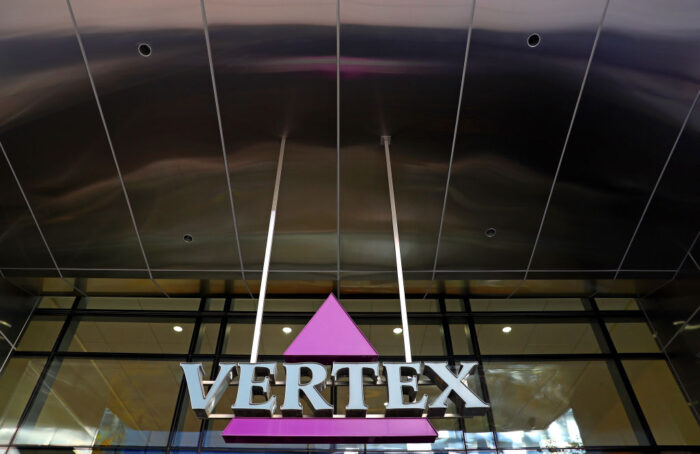
Vertex builds up pipeline of type 1 diabetes cell therapies with $320M buyout – MedCity News

Vertex Pharmaceuticals is developing a cell therapy for type 1 diabetes that replaces the insulin-producing cells lost to the chronic condition. In paying $320 million to acquire ViaCyte, Vertex is getting its hands on the company that was the first to demonstrate this feat in clinical testing.
Boston-based Vertex framed the acquisition agreement announced Monday as complementary to its own research efforts. Privately held ViaCyte brings additional tools, technologies and assets, Vertex CEO Reshma Kewalramani said in a prepared statement.
In type 1 diabetes, the immune system destroys the islet cells in the pancreas that produce insulin. Patients require regular doses of insulin, either by injection or infused from an insulin pump, to maintain levels of the glucose-regulating hormone.
Vertex’s type 1 diabetes cell therapy candidate, VX-880, is comprised of islet cells that are grown in a lab. These cells are infused into a patient along with immunosuppressive therapies to keep the immune system from rejecting them. During the annual meeting of the American Diabetes Association last month, Vertex presented data from two patients who were given half of the targeted dose of cells. Both patients showed changes in blood glucose. One patient achieved insulin independence 270 days after dosing while the other showed a 30% reduction in infused or injected insulin at day 150.
Vertex added VX-880 to its pipeline in 2019, paying $950 million up front to acquire startup Semma Therapeutics. At the time of the deal, Semma was preclinical. The Phase 1/2 study underway has a targeted enrollment of 17 patients. It was cleared to resume last week with the resolution of a clinical hold placed on the study in May; the FDA said at the time that there was insufficient information to support dose escalation.
San Diego-based ViaCyte has three programs in development for type 1 diabetes. The most advanced is VC-02, stem cell-derived islet cells that are housed in an implantable pouch. This pouch connects with a patient’s blood vessels, enabling them to interact with the transplanted cells. In June 2021, ViaCyte reported clinical data at nine months indicating that transplanted cells were producing insulin in the first patient treated with this approach.
Like the Vertex therapy, VC-02 requires immunosuppressive drugs to prevent rejection. A second ViaCyte program, VC-01, could reduce this risk with a pouch designed to prevent the patient’s immune cells from directly coming in contact with the transplanted islet cells. ViaCyte presented additional data for both programs at the American Diabetes Association’s meeting in June. The results are important for showing the potential of cell therapy in type 1 diabetes, according to William Blair analyst Raju Prasad.
“Together, the data demonstrated—for the first time in humans—that implanted pancreatic progenitor cells can functionally differentiate into mature, glucose-responsive, (endogenous) insulin-producing islet cells,” Prasad wrote in a note sent to investors Monday morning.
Vertex’s main interest in ViaCyte might be its third program, which could eliminate the need for immunosuppressive therapy. The cells in this experimental therapy, VCTX210, are edited with CRISPR technology to evade detection by the immune system. ViaCyte is developing VCTX210 under a partnership with CRISPR Therapeutics. The Switzerland-based gene-editing company is already a partner to Vertex. The two firms are collaborating on gene-editing treatments for two blood disorders, sickle for sickle cell disease and beta thalassemia. The collaboration has also expanded to two muscular disorders, Duchenne muscular dystrophy and myotonic dystrophy type 1.
Prasad sees synergies between the type 1 diabetes approaches of Vertex and ViaCyte due to the similarities in the technology, development and manufacturing of the two cell therapies. Those similarities will benefit both CRISPR Therapeutics and Vertex in the development of a CRISPR-edited therapy with a reduced risk of prompting an immune response, he said.
However, the ViaCyte acquisition will still need to pass antitrust muster. The Federal Trade Commission has raised concerns about the anti-competitive effects of some pharmaceutical mergers, discussing the topic most recently during a virtual workshop last month. There are other companies developing innovative new treatments for type 1 diabetes. Beta Bionics has also reached clinical testing with a medical device designed to take on the role of a patient’s pancreas. A drug candidate from Provention Bio is currently under FDA review. The technology that might be closest to ViaCyte’s is a cell pouch in development under Canada-based Sernova. This pouch, designed to house therapeutic cells that could offer an alternative to daily dosing with drugs, is in early clinical development in type 1 diabetes.
Photo: David L. Ryan/The Boston Globe, via Getty Images